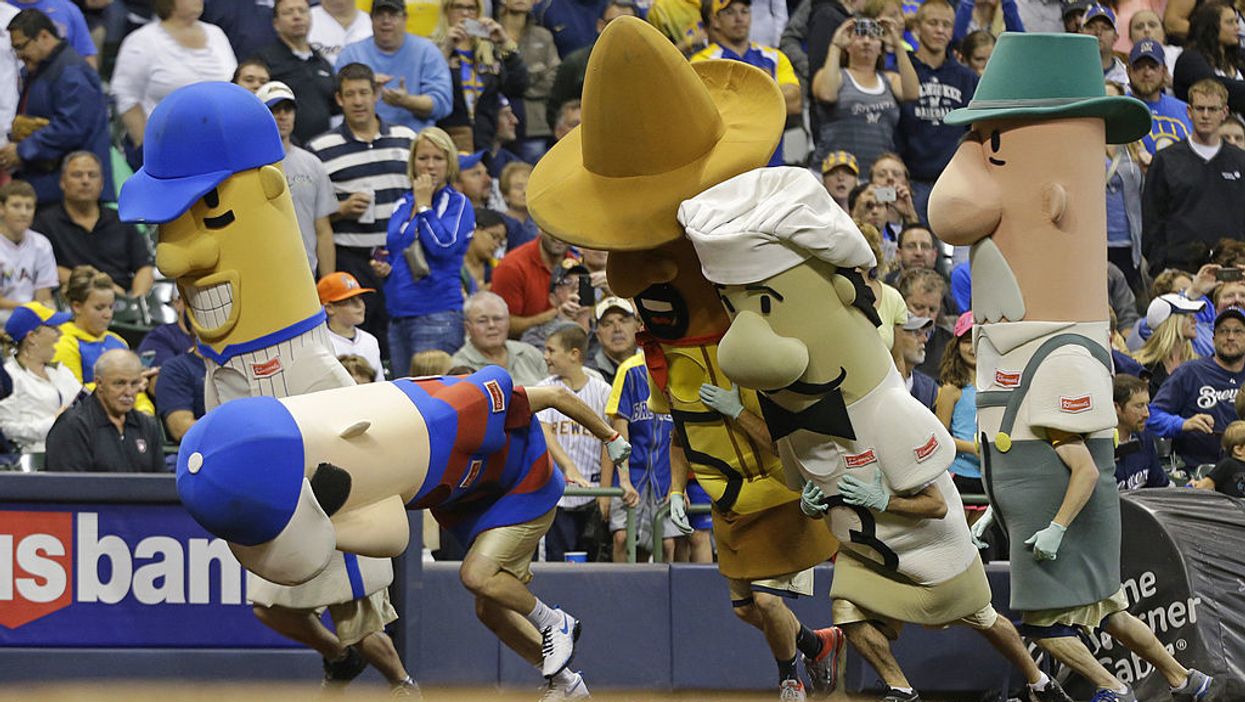The Republican Party is telling the Wisconsin Election Commission and the Milwaukee Brewers that election law would be violated by the mere presence of the baseball team's popular racing sausages when people vote in the stadium.
And, no, it wasn't a joke meant to inject a little levity into the intense debate about election integrity and voter fraud.
The legalistic letter was sent Tuesday by the state GOP chairman, Andrew Hitt. He sent a similar warning to the Milwaukee Bucks about Bango, the NBA franchise's mascot.
Littered with references to specific provisions of state law and precedent-setting court cases, the letters seek to find out what is being planned for Miller Park and Fiserv Forum when they are used as voting sites from Oct. 20 to Nov. 1.
"We want to ensure that no one engages in electioneering or other improper activities at those sites," the letter states. (You see, there are real people inside those goofy and outsized costumes.)
Hitt said he became concerned because a registration drive at Miller Park last week, on National Voter Registration Day, "prominently featured the Brewers Racing Sausages."
To be precise, they are actually the Johnsonville Famous Racing Sausages. Which is trademarked, by the way. And for those who don't know, five oversized costumed characters — representing bratwurst, hot dog, polish, Italian and chorizo — race around the stadium before the bottom of the sixth inning at the Brewers' home games.
While baseball's efforts to promote civil engagement are "commendable," Hitt wrote, having the sausages on hand while voters are marking their ballots would violate the Wisconsin law banning "any activity which is intended to influence voting at an election."
The prohibition, the GOP argues, does not just cover the promotion of candidates. It also guards against any encouragement of the very act of voting.
Neither team has announced plans to put Bango and the racing sausages to work enticing people to get out and vote in one of the year's most important tossup states
But the state GOP asked to be notified if any celebrities are going to be at the arena or ballpark when they are being used as polling places.
Who knows: Maybe they want to make sure to bring condiments.




















